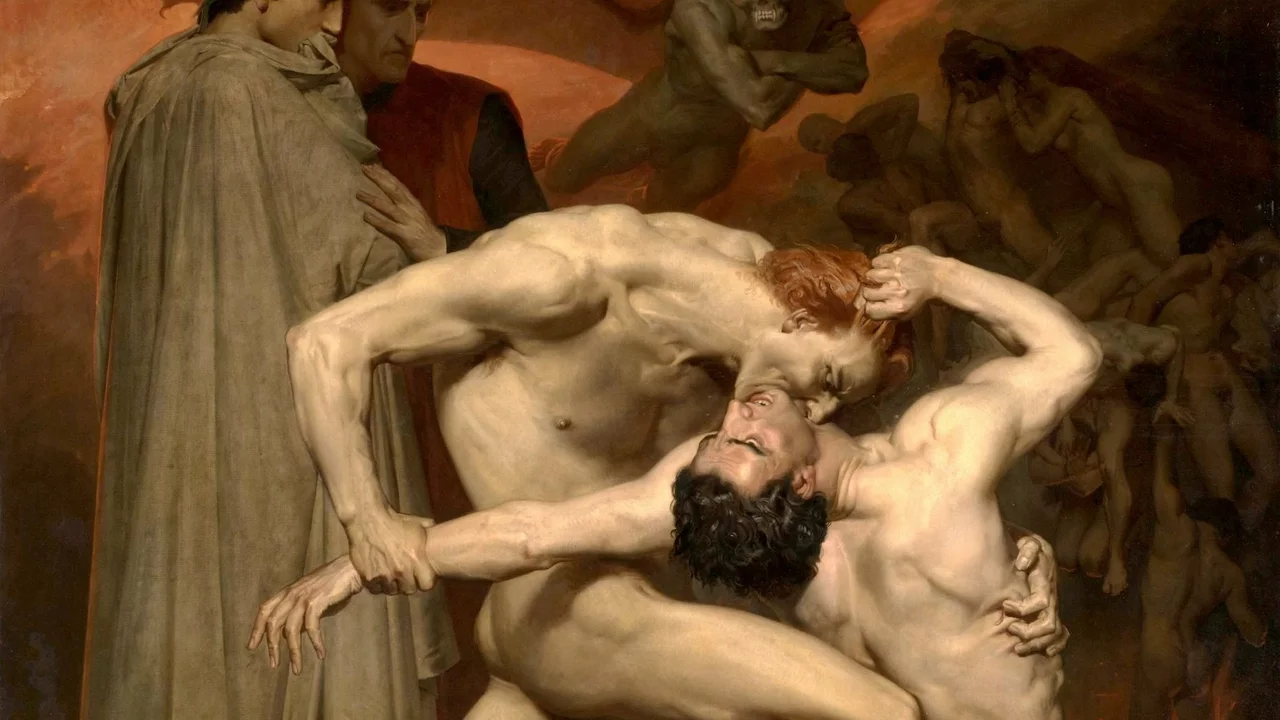Stop, Look, and Inferno: An Insight Into Dante's Hell
Let's face it, life is full of small hells. Take my kids for example - Ronan, ever the scholar, just asked me why Felix, our tabby cat, can't climb our golden retriever, Bobbie, like a tree. Meanwhile, Freya, practically auditioning for a Cirque du Soleil show from the top shelf of our bookcase, simply answered, "because Bobbie isn't a tree, duh!". Now, I tell you this because when Dante Alighieri pictured Hell in his "Divine Comedy", I wonder if he had days like this in mind. Dante's encapsulation of Hell, punctuated by intricate landscapes and vivid punishments, is daunting, if not downright terrifying. Yet it is also strangely compelling, like a good horror movie or a thrill ride at an amusement park. So how should we feel about his depiction of hell?
Circles Unending: Understanding The Structure of Hell
The ingenious structure Dante introduces paints Hell as a churning whirlpool of sin and consequence. Do you remember when I told you about Ronan sticking yogurt into the PS5 because he thought it might upgrade it into a PS6? That scandalous little episode made me feel I was in Dante's 8th circle - Fraud, where falsifiers suffered. But here's the twist - Hell is not just a place for me to offload my daily frustrations. Dante's Hell is a chilling realm of divine justice where punishment perfectly mirrors the sin. Each of the nine circles targets a specific sin, with the severity of punishment increasing as one descends deeper into Hell. This very idea sets the foundation for what Dante believes about moral accountability - a lesson perhaps we should remember every time we're tempted to do something morally grey.
Powerful Imagery and Allegory: More Than Meets the Eye
In Dante's Hell, a merciless Minotaur, an icy Cocytus, a grungy Styx, all serve as breathtaking settings that forces readers to reflect on the corresponding sin within themselves. And who could forget how the sinners are subject to ingenious and, admittedly, grisly torments that directly parallel their sins! The violent against God, for example, eternally burn in a desert of flaming sand with a rain of fire pouring down upon them. So potent is this imagery, it can even dissuade my Felix from swatting at Bobbie's tail. The Genius of Dante lies not just in his intricate punishments but also in his astute observational skills in describing the cringing sensitivity of human emotions, making the punishments feel more vivid and relatable.
Consoling Hell: Spiritual Progress and The Power of Free Will
Just like how Bobbie will risk getting swatted at by Felix for a chance at a belly rub, the souls in Dante's Hell have made their choices. They essentially chose Hell through their actions in life. Whew... what a concept! Almost makes you want to pack up your sins in a suitcase and throw it down a well. Dante's Hell teaches that our choices have consequences not just in this life but also in the afterlife. But here's where it gets interesting: Hell also somehow serves as a deterrent, an intense type of therapy if you will, designed to help the soul progress toward enlightenment. So, all is not lost friends!
How to Think Like Dante: An Exercise in Creating Personal Hells
Now we come to the fun part - let's ponder how to feel about Dante's depiction of hell by creating a Hell of our own. Must we wait till we sin to know the fruit of our action? Why not play Dante and construct our own Inferno with nine circles to accommodate our personal sins? I did this little exercise myself, and guess what, snoozing the alarm came up as my eighth circle sin (Fraud creators, aren't I right?). This might sound offbeat but it does serve as an interesting way to ponder on our everyday inconveniences and relate them back to our own actions and choices.
Dante's Hell: A Grim Reminder or A Guiding Light?
As I wind up, I dare ask: should Dante's Hell terrify us or inspire us towards inner growth? Depends on how you look at it, I guess. It could be a grim reminder of divine retribution waiting to smite us for our sins, or a guiding light, illuminating our path away from ignoble acts and towards spiritual enlightenment. Either way, at the end of the day, Dante's Hell serves as a stark reminder of the consequences of our actions, a fact we often conveniently forget in the hustle and bustle of everyday life.
So, dear reader, as Dante’s Hell rightfully makes you feel uncomfortable, agitated or perhaps somewhat enlightened, remember this: Hell is not just a place of punishment; it's a mirror that forces us to take a hard look at ourselves and our choices. And I think, in these challenging times, that might be precisely what we need.
